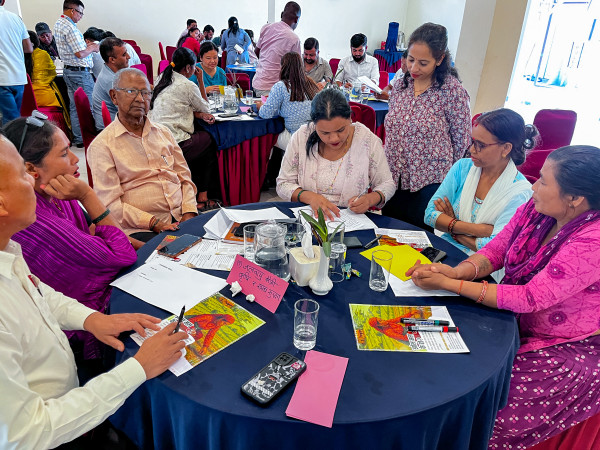Strengthening Municipal Financing and Localizing Climate Actions at the Local Level

Lamahi, Dang | 31 July – 1 August 2025
Lamahi Municipality, in collaboration with the United Nations Human Settlements
Programme (UN-Habitat), organized a two-day workshop on “Strengthening
Municipal Financing and Localization of Integrated Climate Actions.” The
event was conducted under the United Nations Joint SDG Fund project “Accelerating
the Localization of Integrated Climate Actions in Nepal,” which is jointly
implemented by the World Food Programme (WFP), UNDP Nepal, and UN-Habitat
Nepal.
The workshop convened the Mayor, Deputy Mayor, elected representatives, section heads, and council members of Lamahi Municipality, along with representatives from neighboring Rapti, Gadhwa, and Rajpur Rural Municipalities. Development partners, including PLGSP Lumbini Province, were also present, ensuring a diverse and multi-level exchange of perspectives.